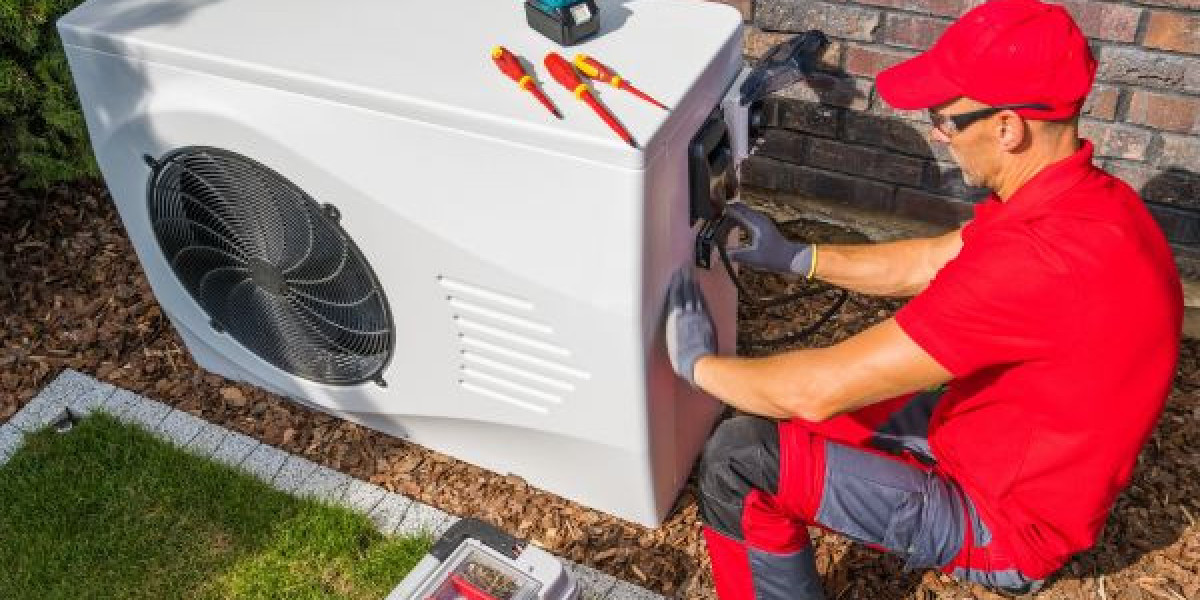Heat pumps are becoming increasingly popular for their energy efficiency and ability to provide both heating and cooling for your home. However, like any appliance, even a reliable 3-ton heat pump can experience problems over time. Recognizing the warning signs of a failing heat pump can help you address issues promptly and prevent costly breakdowns or discomfort during extreme temperatures.
Understanding Your 3-Ton Heat Pump
Heat pumps work by transferring heat, rather than generating it like traditional furnaces or air conditioners. In heating mode, they absorb heat from the outside air and transfer it to your home's interior. In cooling mode, they reverse the process, extracting heat from your home and releasing it outdoors.
A 3-ton heat pump is typically sized for homes between 1800 and 2400 square feet, depending on factors like climate, insulation levels, and ductwork.
Early Detection is Key: Warning Signs to Watch Out For
Ignoring minor issues with your 3-ton heat pump can lead to more significant problems down the road. Here are some key warning signs that indicate your heat pump might need repair:
Reduced Heating or Cooling Performance: A noticeable decline in your home's comfort levels during heating or cooling seasons is a significant indicator of a potential problem. This could manifest as difficulty reaching or maintaining desired temperatures, uneven heating or cooling throughout the house, or rooms that never seem to feel quite comfortable.
Increased Energy Bills: If your energy bills spike unexpectedly during the heating or cooling seasons, it could be a sign that your heat pump is working harder than usual to maintain the desired temperature. This can be caused by a variety of issues, such as a refrigerant leak, clogged air filters, or failing components.
Unusual Noises: Your heat pump shouldn't produce excessive noise during operation. Listen for any loud grinding, clanging, screeching, or other unusual noises that weren't present before. These sounds could indicate failing components like the compressor or fan motor.
Short Cycling: Short cycling refers to a situation where your heat pump frequently turns on and off in rapid succession, rather than running for sustained cycles. This can put unnecessary strain on the system and reduce its efficiency. Short cycling can be caused by a variety of issues, including dirty filters, refrigerant leaks, or problems with the thermostat.
Ice Buildup on the Outdoor Unit: During winter operation, some frost accumulation on the outdoor unit is normal. However, excessive ice buildup that doesn't melt away can be a sign of low refrigerant levels, a malfunctioning defrost cycle, or clogged drainage lines.
Strange Odors: If you detect any unusual smells coming from your heat pump, such as burning rubber, electrical burning, or a musty odor, turn off the system immediately and contact a qualified HVAC professional. These smells could indicate serious electrical problems or mold growth within the unit.
Taking Action: When to Call an HVAC Professional
If you notice any of these warning signs, it's crucial to contact a qualified HVAC (Heating, Ventilation, and Air Conditioning) professional as soon as possible. Here's why:
Early diagnosis and repair: Addressing problems early can prevent them from escalating into more expensive repairs or a complete system breakdown.
Preventing further damage: Ignoring warning signs can lead to further damage to your heat pump, potentially shortening its lifespan and increasing repair costs.
Maintaining comfort: A malfunctioning heat pump can leave you feeling uncomfortable during extreme temperatures. Prompt repairs ensure your home stays warm in winter and cool in summer.
Ensuring safety: Some issues, like electrical problems or refrigerant leaks, can pose safety hazards. A qualified professional can identify and address these concerns.
What to Expect During a Service Call
When you call an HVAC professional, they will typically follow these steps:
- Inspection: The technician will thoroughly inspect your heat pump, both indoors and outdoors, looking for signs of problems.
- Diagnosis: Based on the inspection and their expertise, they'll diagnose the issue with your heat pump.
- Repair Options: Depending on the severity of the problem, they'll present you with repair options. This might involve replacing a specific component, cleaning the system, or addressing refrigerant levels.
- Cost Estimate: The technician will provide you with a cost estimate for the repairs before any work is done.
Preventative Maintenance: Keeping Your Heat Pump Running Smoothly
Regular preventative maintenance is key to extending the lifespan of your 3-ton heat pump and avoiding costly repairs. Here are some simple maintenance tips:
- Schedule regular tune-ups: Aim for professional maintenance at least once a year, preferably before the start of each heating or cooling season.
- Change air filters regularly: Dirty air filters restrict airflow and can cause your heat pump to work harder, reducing efficiency and potentially leading to malfunctions. Change or clean your air filters according to the manufacturer's recommendations, typically once a month.
- Keep the area around the outdoor unit clear: Ensure there are no obstructions around the outdoor unit, allowing for proper airflow. Remove leaves, debris, and overgrown vegetation that could impede air circulation.
- Schedule professional cleaning occasionally: In addition to regular filter changes, consider scheduling a professional cleaning of your heat pump every few years. This can help remove built-up dirt and debris from the coils and other components, improving efficiency and performance.
Making Informed Decisions: Repair vs. Replacement
When faced with repairs, it's important to weigh the cost against the age and condition of your heat pump. Here are some factors to consider:
- Age of your heat pump: A well-maintained 3-ton heat pump can last 10-15 years. If your heat pump is nearing the end of its lifespan and repairs become frequent or expensive, replacing it with a newer, more efficient model might be a more cost-effective solution in the long run.
- Severity of the problem: Minor repairs are usually more economical than a complete system replacement. However, if the repairs are extensive or involve replacing major components, a new heat pump might be a better investment.
- Advancements in technology: Newer heat pump models offer increased efficiency, improved comfort features, and potentially lower operating costs compared to older models.
Consulting with your HVAC professional is crucial for making an informed decision. They can assess the condition of your heat pump, provide accurate repair estimates, and discuss the potential benefits of replacing it with a newer model.
Conclusion
By recognizing the warning signs of a failing heat pump and taking prompt action, you can ensure your home stays comfortable year-round and avoid costly breakdowns. Regular maintenance practices can help extend the lifespan of your 3-ton heat pump and keep it running efficiently. Remember, a proactive approach to heat pump care translates to a comfortable home environment, potentially lower energy bills, and peace of mind knowing your system is functioning properly.
Also Read = Goodman 60000 btu furnace 80: Sizing Up Your Winter Comfort Needs








